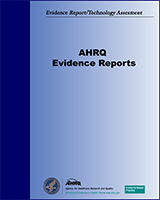NCBI Bookshelf. A service of the National Library of Medicine, National Institutes of Health.
This publication is provided for historical reference only and the information may be out of date.
Structured Abstract
Objectives:
This evidence report summarizes the effects of garlic on cardiovascular-related factors and disease, associations between garlic and cancer, and possible adverse effects of garlic.
Search Strategy:
English and non-English citations were identified through February 2000 from 11 electronic databases, references of pertinent articles and reviews, manufacturers, and technical experts.
Selection Criteria:
We limited review of cardiovascular-related effects to randomized controlled trials in humans that lasted at least 4 weeks and compared garlic with placebo, no garlic, or another active agent. Review of associations with cancer was limited to controlled studies that compared any precancerous or cancerous lesions in humans consuming varying amounts of garlic. All types of studies in humans were used to assess adverse clinical effects.
Data Collection and Analysis:
Two physicians abstracted data from cardiovascular and cancer studies; one physician abstracted data about adverse effects. Lipid outcomes from cardiovascular trials were examined quantitatively using standardized and unstandardized mean differences (adjusted for baseline differences).
Main Results:
Thirty-seven randomized trials, all but one in adults, consistently showed that compared with placebo, various garlic preparations led to small, statistically significant reductions in total cholesterol at 1 month (range of average pooled reductions 1.2 to 17.3 milligrams per deciliter [mg/dL]) and 3 months (range of average pooled reductions 12.4 to 25.4 mg/dL). Eight trials with outcomes at 6 months showed no significant reductions of garlic compared with placebo. Changes in low-density lipoprotein (LDL) levels and triglycerides mirrored total cholesterol results; no significant changes in high-density lipoprotein (HDL) levels were found.
Twenty-seven small, randomized, placebo-controlled trials, all but one in adults, reported mixed but never large effects of various garlic preparations on blood pressure outcomes.
Twelve small, randomized trials suggested that various garlic preparations had no clinically significant effect on glucose in persons with or without diabetes. Two small short trials reported no statistically significant effects of garlic compared with placebo on serum insulin or C peptide levels.
Ten small trials, all but one in adults and of short duration, showed the effects of various garlic preparations on platelet aggregation and mixed effects on plasma viscosity and fibrinolytic activity.
There were insufficient data to confirm or refute garlic's effects on clinical outcomes such as myocardial infarction and claudication.
Scant data, primarily from case-control studies, suggest, but do not prove, that dietary garlic consumption is associated with decreased odds of laryngeal, gastric, colorectal, and endometrial cancer and adenomatous colorectal polyps.
Adverse effects of oral ingestion of garlic are "smelly" breath and body odor. Other possible, but not proven, adverse effects include flatulence, esophageal and abdominal pain, small intestinal obstruction, dermatitis, rhinitis, asthma, and bleeding.
Conclusions:
Trials show several promising, modest, short-term effects of garlic supplementation on lipid and antithrombotic factors. Effects on clinical outcomes are not established, and effects on glucose and blood pressure are none to minimal. High dietary intake of garlic may be associated with decreased odds of multiple cancers. Ability to interpret existing data is substantively limited by marked variability in types of garlic preparations that have been studied and inadequate definition of active constituents in the various preparations.
Contents
Prepared for: Agency for Healthcare Research and Quality, U.S. Department of Health and Human Services.1 Contract No. 290-97-0012. Prepared by: San Antonio Evidence-based Practice Center based at The University of Texas Health Science Center at San Antonio and the Veterans Evidence-based Research, Dissemination, and Implementation Center, a Veterans Affairs Health Services Research and Development Center of Excellence.
Suggested citation:
Mulrow C, Lawrence V, Ackermann R, et al. Garlic: effects on cardiovascular risks and disease, protective effects against cancer, and clinical adverse effects. Evidence Report/Technology Assessment No. 20 (Contract 290-97-0012 to the San Antonio Evidence-based Practice Center based at The University of Texas Health Science Center at San Antonio and the Veterans Evidence-based Research, Dissemination, and Implementation Center, a Veterans Affairs Health Services Research and Development Center of Excellence). AHRQ Publication No. 01-E023. Rockville, MD: Agency for Healthcare Research and Quality. October 2000.
On December 6, 1999, under Public Law 106-129, the Agency for Health Care Policy and Research (AHCPR) was reauthorized and renamed the Agency for Healthcare Research and Quality (AHRQ). The law authorizes AHRQ to continue its research on the cost, quality, and outcomes of health care and expands its role to improve patient safety and address medical errors.
This report may be used, in whole or in part, as the basis for development of clinical practice guidelines and other quality enhancement tools, or a basis for reimbursement and coverage policies. AHRQ or U.S. Department of Health and Human Services endorsement of such derivative products may not be stated or implied.
The authors of this report are responsible for its content. Statements in the report should not be construed as endorsement by the Agency for Healthcare Research and Quality or the U.S. Department of Health and Human Services of a particular drug, test, treatment, or other clinical service.
- 1
2101 East Jefferson Street, Rockville, MD 20852. www
.ahrq.gov
- Garlic: Effects on Cardiovascular Risks and Disease, Protective Effects Against ...Garlic: Effects on Cardiovascular Risks and Disease, Protective Effects Against Cancer, and Clinical Adverse Effects
- Management of Neonatal HyperbilirubinemiaManagement of Neonatal Hyperbilirubinemia
Your browsing activity is empty.
Activity recording is turned off.
See more...
